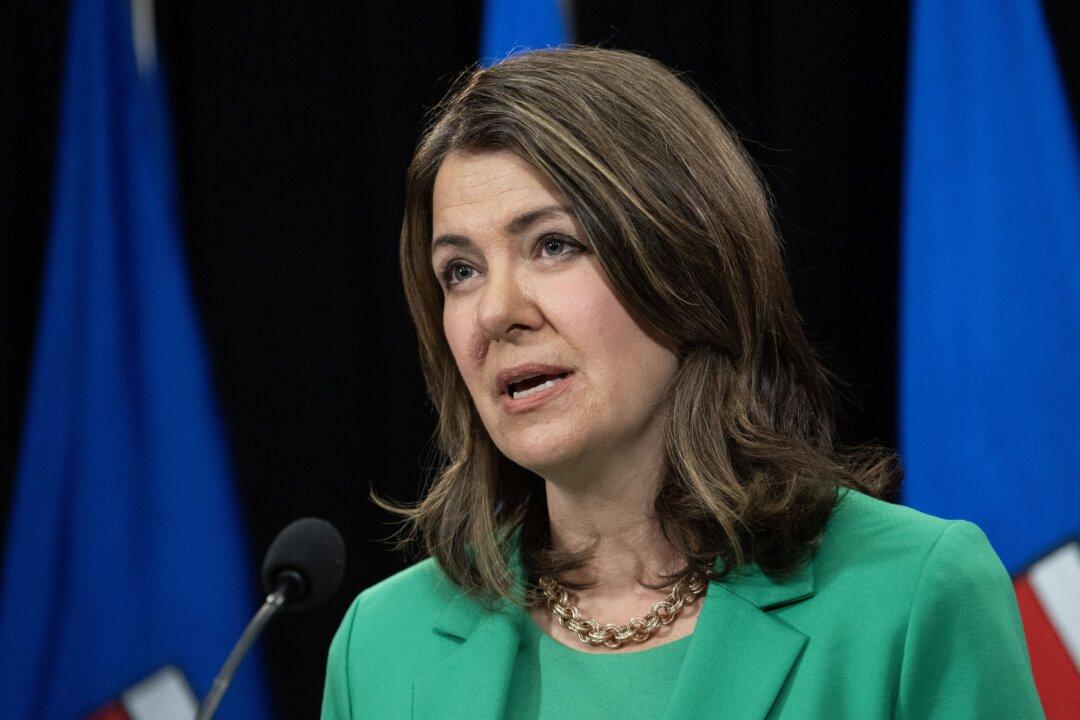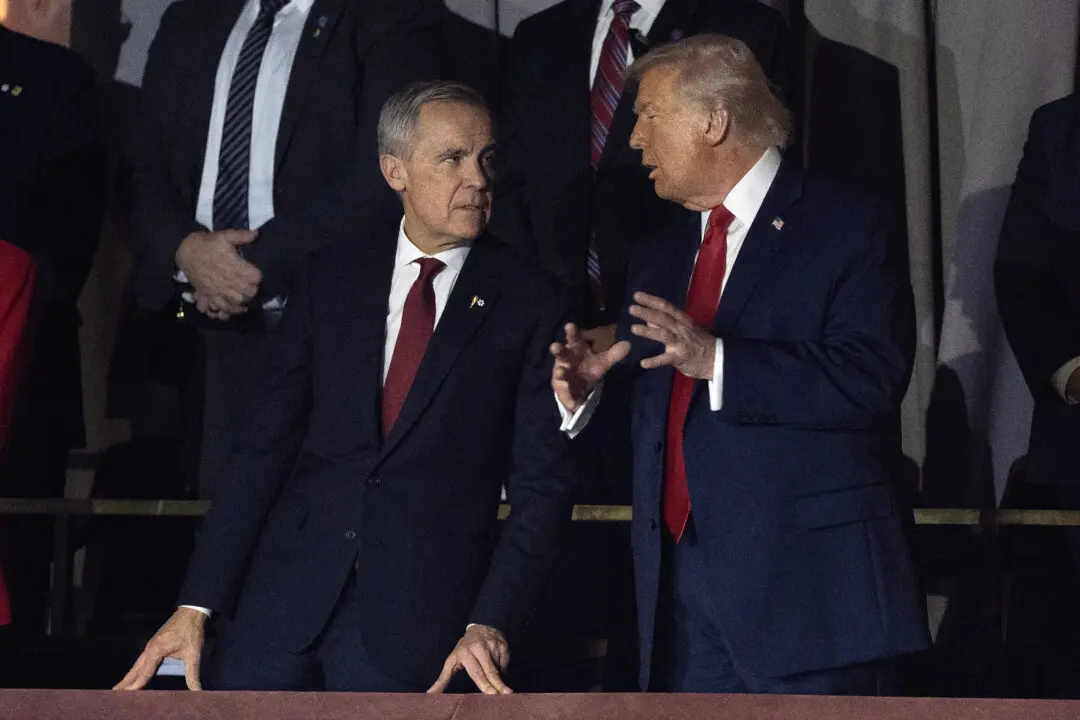Alberta Premier Danielle Smith says her province will do “everything within its legal jurisdiction” to oppose Ottawa’s plan to mandate the exclusive sale of zero-emission electric vehicles (EVs) in Canada by 2035.
“Alberta’s government supports reducing emissions from the transportation sector and supporting Albertans who wish to drive lower-emissions vehicles,” the premier said in an X post on Dec. 19 shortly after the federal government’s announcement. “However, these efforts must be led by and support consumers and businesses, and the federal government has no legal or moral authority to tell Albertans what vehicles they can and cannot buy.”





